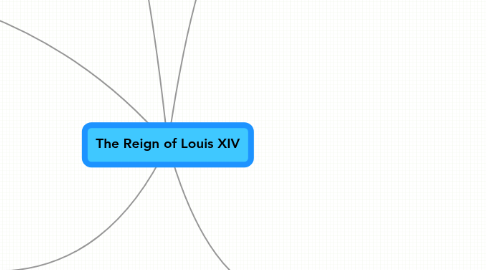
1. As france regained political power a new intellectual movement developed. French writers developed the concept of open skepticism toward goverment actions.
1.1. Two great writers would come develop from such a practice.
1.1.1. Another brilliant writer as well as thinker was a man named Descartes. He examined that the skeptical argument could never be sure of anything. He used such arguments and reasons to argue such arguments.
1.1.2. Michel de Montaigne lived ruring the worst years of the french religous wars. After the death of a friend he started thinking deeply about lifes meaing. He developeda new form of literatureto communicate his ideas, called the essay.
2. The Sun King's Grand Style
2.1. One of the things that the Sun King was famous for was his extravagant style.
2.1.1. Louis kept power easily oneway by using his style, every mornig the chief valet woke him up at 8:30
2.1.1.1. A hundred nobles wouldwait to help the great king dress and only four would have the honor of handing him his slippers or holding his sleeves.
2.1.1.1.1. Having the nobles at his palace not only gave him class but also more power over them because it made them totally dependent on them
2.1.2. His castle at Versailles was the center of the arts during Louis reign.
2.1.2.1. One of his favirote writers was Moliere, who wrote some of the funniest plays of french literature.
2.1.2.1.1. Not since Augustus of Rome had there been a European Monarch who supported the arts as much as Louis.
3. Louis Fights Disastrous Wars
3.1. During Louis reign he would start wars that would lead to a total of 47 years of confilict.
3.1.1. Louis first attempt to take over the dutch lands.
3.1.1.1. His first invasion was particularly successful and took 12 towns. At the surrender of of the dutch he gained several more.
3.1.1.1.1. When the end of the 1680's came, a Europeanwide alliance was formed to halt any possible french advances. in 1689 the prince of the Dutch became King of England.
3.1.2. The war of spanish succession was a bid by france to try to take spain.
3.1.2.1. Eventually both sides grew tired of the war and a french noble became the lord of spain.
3.1.2.1.1. When the war was going to end with the peaceful joining of the two sides the european allaince stepped in to prevent the two nations from converging.
4. Religious Wars and Power Struggles
4.1. In 1572, the St. Bartholomew's Day Massacre in Paris sparked a six-week, nationwide slaughter of Huguenots.
4.2. Henry inherited the throne and became Henry IV, the first king of the Bourbon dynasty in France.
4.2.1. Many Catholics opposed Henry, he chose to give up Protestantism and became a Catholic.
4.2.1.1. Many people hated Henry for his religious compromises.
4.2.1.1.1. A fanatic leaped into the royal carriage and stabbed Henry to death in 1610.
4.2.2. He declared that the Huguenots could live in peace in France and set up their wn houses of worship in some cities.
4.2.2.1. The declaration of religious toleration was called the Edict of Nantes.
4.2.3. Henry restored the French monarchy to a strong position.
5. Louis XIV Comes to Power
5.1. The efforts of Henry IV and Richelieu to stregthen the French monarchy paved the way for the most powerful ruler in French history, Lousis XIV.
5.1.1. In Louis's view he and the state were one in the same, he was only four years old when he began his reign.
5.1.1.1. After Marzarin's death Louis took control of the government at 22 years old.
5.1.1.1.1. He weakened the power of the nobles by excluding them from his councils.
5.1.1.1.2. He increased the power of the government agents called intendants, who collected taxes and administered justice.
5.1.1.1.3. Louis devoted himself to helping France attain economic, political and cultural brilliance.
5.2. When Louis became king in 1643 after the death of his father the true ruler of France was Richelieu's successor, Cardinal Mazarin.
5.2.1. Mazarin's greatest triumph came in 1648, with the ending of the Thirty Years' War.
5.2.1.1. Many people in France hated Mazarin because he increased taxes and strengthened the central government.
5.2.1.1.1. Violent anti-Marzarin riots tore France apart, at Louis' fear of the nobility he was determined to become so strong that they could never threaten him again.
